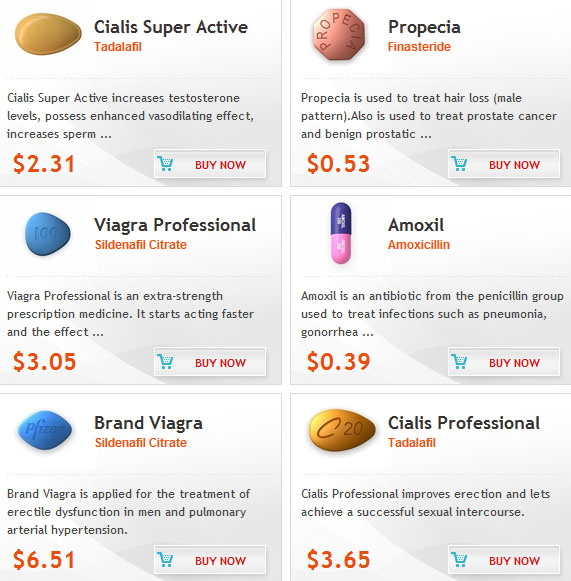
By Ricardo Henri
Introduction
Kidney stones, one of the most painful urological disorders, have troubled humans for ages.They form when there is a large amount of calcium oxalate or uric acid in the urine; a lack of citrate in the urine; or insufficient water in the kidneys to dissolve waste products.Kidney stones are most prevalent in persons between the ages of 30 and 45, and the incidence declines after age 50.They can be as small as a grain of sand or as big as a pearl and often do not cause any signs or symptoms.
Symptoms
Stones that produce lasting symptoms or other complications may be treated using various methods, most of which do not necessitate major surgery.Sometimes "silent" stones (those that do not produce symptoms) are found on x-rays taken during a general health exam.The doctor determines if the patient has a history of kidney stones, documents past health conditions, and evaluates present symptoms.
When the stone enters the bladder, the obstruction in the ureter is eased and the symptoms are resolved.Kidney stones normally depart the body by pa*sage in the urine stream, and many are formed and pa*sed without causing any symptoms.Those with severe symptoms may need to be hospitalized.Call your MD if you have symptoms or if symptoms come back, urination becomes painful, urine output decreases, or new symptoms develop.
Treatment
Treatment varies, depending on the kind of stone and the cause and usually includes pain medication and increased fluids (to drink) until the stone has exit the body.If a stone has been removed, or if the patient has pa*sed a stone and saved it, an analysis by the laboratory may help the physician in planning treatment.A second twenty four hour urine collection may be needed to determine whether the prescribed treatment is effective.Today, treatment for kidney stones is greatly improved, and many options do not need major surgery and can be performed in an outpatient setting.
To reduce the risk of complications, MDs normally tell patients to avoid taking aspirin and other medications that affect blood clotting for several weeks before treatment.Sometimes the stone is not completely shattered with one treatment, and additional ones may be required.As with any interventional, surgical procedure, potential risks and complications should be discussed with your MD prior to making a final decision.
If no specific therapy exists, you may be able to stave off more kidney stones simply by drinking more water and making a few dietary changes.After therapy, the pain may return if the stone moves and causes blockage in another area of the body.The goal of therapy is to relieve and prevent further symptoms.
Conclusion
Kidney stones are small, hard deposits of mineral and acid salts on the inner surfaces of your kidneys and form when a change happens in the normal balance of water, salts, minerals, and other things found in urine.They are very painful but usually can be removed from the body without causing permanent damage.They usually cause no pain while in the kidneys, but can cause sudden, sharp pain while traveling to the bladder.Kidney stones are more common in developed nations and do have regional variation in occurrence.They occur all year; however, more people seem to develop or become aware of stones during the summer months.They are an ancient problem dating back to the age of the Egyptian pyramids, yet are still a common malady today.Stones are usually pa*sed out of the body within forty eight hours, but attacks can sometimes last for over 30 days.Most however, pa*s out of the body without help from a physician.
should someone in your family have them, you're more likely to develop them too and if you've already had one or more, you're at increased risk of developing another.Many people who develop stones are between 20 and 70 years of age.Having high blood pressure doubles your risk.According to The National Institute of Health, 1 person in 10 develops kidney stones during their lifetime and renal stone disease accounts for 10 out of every 1000 hospital admissions.Conventional wisdom and common sense have long held that consumption of excessive calcium could promote the development of kidney stones.However, recent evidence suggests that the consumption of low-calcium diets is ACTUALLY a*sociated with a greater overall risk for the development of kidney stones.Call your MD right away if you have symptoms that suggest you have them.
Kidney stones, one of the most painful urological disorders, have troubled humans for ages.They form when there is a large amount of calcium oxalate or uric acid in the urine; a lack of citrate in the urine; or insufficient water in the kidneys to dissolve waste products.Kidney stones are most prevalent in persons between the ages of 30 and 45, and the incidence declines after age 50.They can be as small as a grain of sand or as big as a pearl and often do not cause any signs or symptoms.
Symptoms
Stones that produce lasting symptoms or other complications may be treated using various methods, most of which do not necessitate major surgery.Sometimes "silent" stones (those that do not produce symptoms) are found on x-rays taken during a general health exam.The doctor determines if the patient has a history of kidney stones, documents past health conditions, and evaluates present symptoms.
When the stone enters the bladder, the obstruction in the ureter is eased and the symptoms are resolved.Kidney stones normally depart the body by pa*sage in the urine stream, and many are formed and pa*sed without causing any symptoms.Those with severe symptoms may need to be hospitalized.Call your MD if you have symptoms or if symptoms come back, urination becomes painful, urine output decreases, or new symptoms develop.
Treatment
Treatment varies, depending on the kind of stone and the cause and usually includes pain medication and increased fluids (to drink) until the stone has exit the body.If a stone has been removed, or if the patient has pa*sed a stone and saved it, an analysis by the laboratory may help the physician in planning treatment.A second twenty four hour urine collection may be needed to determine whether the prescribed treatment is effective.Today, treatment for kidney stones is greatly improved, and many options do not need major surgery and can be performed in an outpatient setting.
To reduce the risk of complications, MDs normally tell patients to avoid taking aspirin and other medications that affect blood clotting for several weeks before treatment.Sometimes the stone is not completely shattered with one treatment, and additional ones may be required.As with any interventional, surgical procedure, potential risks and complications should be discussed with your MD prior to making a final decision.
If no specific therapy exists, you may be able to stave off more kidney stones simply by drinking more water and making a few dietary changes.After therapy, the pain may return if the stone moves and causes blockage in another area of the body.The goal of therapy is to relieve and prevent further symptoms.
Conclusion
Kidney stones are small, hard deposits of mineral and acid salts on the inner surfaces of your kidneys and form when a change happens in the normal balance of water, salts, minerals, and other things found in urine.They are very painful but usually can be removed from the body without causing permanent damage.They usually cause no pain while in the kidneys, but can cause sudden, sharp pain while traveling to the bladder.Kidney stones are more common in developed nations and do have regional variation in occurrence.They occur all year; however, more people seem to develop or become aware of stones during the summer months.They are an ancient problem dating back to the age of the Egyptian pyramids, yet are still a common malady today.Stones are usually pa*sed out of the body within forty eight hours, but attacks can sometimes last for over 30 days.Most however, pa*s out of the body without help from a physician.
should someone in your family have them, you're more likely to develop them too and if you've already had one or more, you're at increased risk of developing another.Many people who develop stones are between 20 and 70 years of age.Having high blood pressure doubles your risk.According to The National Institute of Health, 1 person in 10 develops kidney stones during their lifetime and renal stone disease accounts for 10 out of every 1000 hospital admissions.Conventional wisdom and common sense have long held that consumption of excessive calcium could promote the development of kidney stones.However, recent evidence suggests that the consumption of low-calcium diets is ACTUALLY a*sociated with a greater overall risk for the development of kidney stones.Call your MD right away if you have symptoms that suggest you have them.
About the Author:
Ricardo Henri is the owner of Natural Remedies,Treatments And Cures,a website with a wealth of info concerning taking care of your health without relying on medicationsand needless surgery.Subscribe to his monthly newsletter @ Natural Remedies Treatments Cures
Recetas para salvar el SNS - DiarioMedico.com





















No comments:
Post a Comment
Note: Only a member of this blog may post a comment.